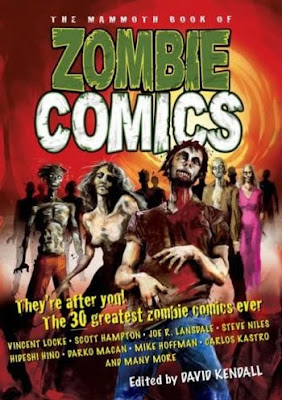
As I look back upon the past year, certainly my biggest disappointment was missing out on the chance to see Jay-Jay Johanson perform live in Montreal. My departure and his arrival in la belle province were within days of each other. Although I'm certain there will be other opportunities to see him, I can't help but feel a few pangs of regret in my more self-indulgent moments. The next best thing (I suppose) was that I finally got my hands on his latest album, "Self-Portrait". I realize that I'm a bit late to the party on this one, as the album was released in 2008, but it was incredibly hard to find here in North America. I was grateful to finally receive it as a birthday gift (thanks Christian!)
As I've stated in reviews of his past albums, Johanson is a highly introspective artist. His medium is trip-hop/jazz/electronic characterized by sombre tones and autobiographical lyrics. With each album it seems that Johanson bares a little bit more of his soul to us. His previous effort, "The Long-Term Physical Effects Are Not Yet Known" was, to my mind, pretty much his most perfect album so I had very high expectations for "Self-Portrait". After all, with a title like that I expected more of the same.
Ironically, I found "Self-Portrait" to be a much less personal effort. This is not so much a view of Jay-Jay the man, but rather a look at Jay-Jay through the lens of relationships he's had with women throughout his life. None of which, it seems, were very successful. Not surprisingly, if this is a "Self-Portrait", then the picture is a bleak one. Musically, the album veers away from anything catchy or pop; it falls more under the umbrella of jazz with lots of piano and hints of downbeats. The tone is dark and melancholy, brimming with regret.
The lead single, "Wonder Wonders" opens the album and sets the tone with musings of whatever happened to a past love. "Lightning Strikes" continues with much the same dwelling, marking the passage of time and healing of old wounds, leading to "Autumn Winter Spring". To my untrained ear, there really is very little variation on this album. Most of the songs are similar in tone, tempo, instrumentation. If you were to interpret "Self-Portrait" in visual terms, it would be a canvas of a solid, neutral colour. The difference between songs feels a bit like discerning the spectrum from grey to charcoal, slate, silver, oyster, pearl or taupe... Ok, that's a bit unfair, but there really isn't any "stand out" track on this album for me. "Liar" is short and sweet, like a brief interlude which gives us a bit of a break. "Trauma", definitely the most "jazzy" is probably my favourite track. I've always been drawn to maudlin, angst-filled lyrics and these are some pretty good ones:
"On the borderline of silence,
Trauma setting in
And the loneliness is killing me
So you've got to accept my apology
It'll all become a catastrophe."
Musically, the strongest and most stand-out track would be "Broken Nose"; a story of domestic violence marked by an urgent, pounding staccato piano line. Although I feel I've come to know Jay-Jay fairly well from his songs, I'm not really sure who the abused woman is in this tale of woe or how she fits into his autobiography. The vocal melody in "Medicine" seems inexplicably familiar to me, as though I've heard something similar before but I can't place it. The album ends with "Sore", which feels like a heavy black raincloud rolling closer onto the horizon. So, we're not exactly left on a high note.
"Self-Portrait" is a bit of a disappointment. It's "good" but falls flat for me. I can see this maybe being one of those albums that "grows on me" over time but right now I just don't feel connected to it. Perhaps Jay-Jay felt these songs were an accurate depicition of his life, though not necessarily a flattering one. (Like a passport photo may be a more honest representation than a soft-focus glamour shot?) I find the title of the album puzzling and a bit of a misnomer, since the songs seem to focus on the women more than on Jay-Jay himself. Honestly, I felt "The Long Term Physical Effects..." was more honest, more psychologically revealing, and overall stronger album but then who am I to say?

















 Of course, at the same time I now feel a slight tinge of sadness. Yet another of my life's elusive mysteries solved. Without the seeking, what is left?
Of course, at the same time I now feel a slight tinge of sadness. Yet another of my life's elusive mysteries solved. Without the seeking, what is left?









